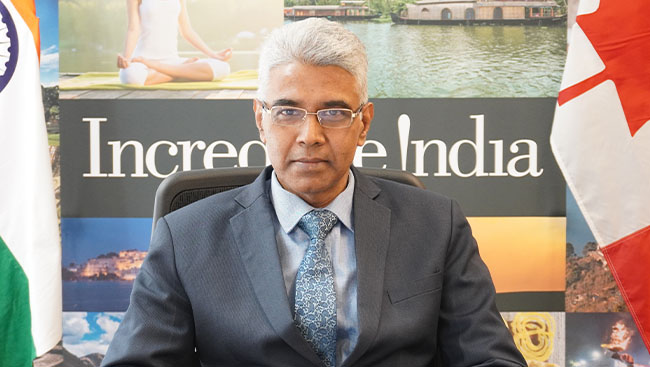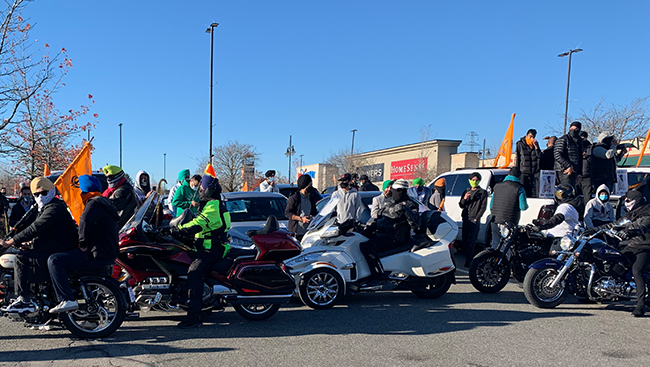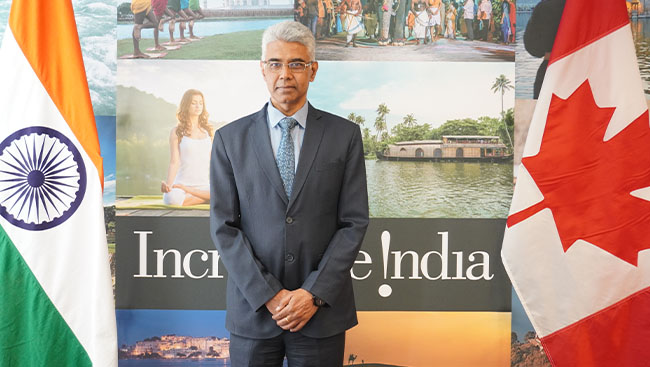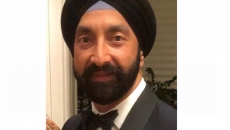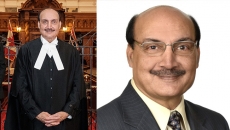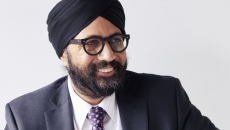“People here have to understand two things – no government that is democratically elected works against its own people to whom it has to go back to seek re-election every five years; and that India is going through a process of necessary reforms in many sectors, including in the agriculture sector,” said Mr Manish, the Consul General of India in Vancouver in his first interview with DARPAN
Prior to becoming the Consul General of India in Vancouver, where were you posted and what was your role?
Before assuming the duties of Consul General of India, I was posted at the Ministry of External Affairs (MEA) in New Delhi. In Delhi, I worked briefly in the Sushma Swaraj Foreign Service Institute. I also served as Joint Secretary managing India’s bilateral relationship with ASEAN countries, Australia, New Zealand and Pacific Island Countries, and later in the Overseas Indian Affairs Division. In terms of my overseas assignment, I got the opportunity to serve in Moscow, Tashkent, Prague, Colombo and Jakarta. In between my overseas assignment I also served in MEA in various roles looking after bilateral and multilateral affairs.
What were you looking forward to the most as the Consul General of India in Vancouver?
I was very excited at the thought of bringing my contribution to further our relationship between India and the five important provinces in Western Canada, namely British Columbia, Saskatchewan, Alberta, Yukon and Northwest Territories. I looked forward to building on the existing trade relations between India and these provinces. Since three of these five provinces also have a large number of people of Indian descent, I was particularly excited that as India’s Consul General in Vancouver I am getting an opportunity to connect with them and bring them the Consular services that they need and expect from their Consulate. Western Canada is very important in overall India-Canada relationship, and since it was my first assignment in this part of the world, I looked forward to my assignment.
How has your experience in Vancouver been so far?
Vancouver is not only a beautiful city but it is also a trade gateway to Western Canada. For the Indian Diaspora it has great historical significance as the first immigrants from India arrived here in 1904 and established themselves in British Columbia. So, Vancouver has a very old connection with India and today the Greater Vancouver area has one of the most thriving population of Indian descent in Canada. The city has it own charm and it grows on you with passage of time.
I am also very impressed with the enterprising spirit of the people of Greater Vancouver. Although the Covid-19 restrictions have prevented regular contacts, but I have been able to meet in person or virtually some of the most interesting people here from all walks of life. I look forward to explore the place and meet new people in the near future when life returns to normal.
What are some of the challenges you would have to overcome in your current role of Consul General?
Every diplomat aspires to leave a legacy of better relations between the host country and his own. Building even more closer ties between India and the respective provinces under my jurisdiction and enhancing two-way trade and investments are the two main focus areas for me. However, to achieve these objectives we need support of the other side. British Columbia remains our largest trading partner in Western Canada and I believe that much more can be done together. I am very happy to state that Saskatchewan and Alberta have emerged as very key provinces where we have a clear mutual understanding that trade and investments are a growing part of our relationship. In fact, Saskatchewan has recently opened a trade office in New Delhi. Our trade relations with Yukon and Northwest Territories are currently very small.
With the farmer’s protest and with lots of families living in Vancouver being impacted by it, what role can your office play to ensure a peaceful resolution to this conflict?
People here have to understand two things – no government that is democratically elected works against its own people to whom it has to go back to seek re-election every five years; and that India is going through a process of necessary reforms in many sectors, including in the agriculture sector, which employs 60% population that contributes 18% to our GDP. The Government of India, with a view to bring greater productivity and prosperity to the agricultural sector in India, has introduced legislation to reform India’s agricultural markets. While these reforms have been appreciated by farmers in several Indian provinces, some farmers’ unions have also registered their protest. These internal developments in India’s vibrant democracy have also had an echo in Canada, with some organizations mobilizing opinion and protests in keeping with their provincial affinities in India. Canadian media has also devoted significant attention to these developments although most coverage has not been very objective and lacking in understanding of the farm bills.
The enactment of these laws is part of the government’s promise to the people of India to double the income of India’s farmers – a segment that has long remained among the most poor and vulnerable in the country. It is part of our ongoing efforts to modernize India’s economy and it is only natural that entrenched and established interests, which are often very powerful and well-funded, would seek to oppose such changes.
The envisaged reforms in the agricultural sector in India are of a transformational nature and would create conditions for prosperity and empowerment of the largest segment of India’s population. The ultimate beneficiaries of these reforms are the small and marginal farmers of India who have been shackled by a traditional system that does not remunerate innovation and enterprise. The new laws have been enacted by the Parliament of India after due process and debate. This was preceded by much debate and discussion, including in a series of committees and commissions established over the past two decades that repeatedly suggested such reforms.
The quest to improve the life of its poor farmers, the legislative process by which those goals are sought to be achieved, the peaceful protests that are natural with such change and the process to find a consensus are all Indian. The Indian Constitution provides sufficient avenues in the executive, legislative and judicial domains for resolution of such matters in a peaceful manner. The people of India look to their overseas friends for support and understanding as they go through this process.
What’s your take of current India-Canada relations? What can be done further to strengthen the ties between the two nations?
India-Canada bilateral ties are underpinned by shared values of democracy, pluralism, expanding economic engagement, regular high-level interactions and long-standing people-to-people ties. India attaches great importance in taking forward its strategic partnership with Canada. We have very good economic linkages, but more needs to be done to further deepen the economic relations. India’s rapid and sustained economic progress and economic reforms provide ample opportunities. Canadian Pension funds remains a strong partner for India’s infrastructure development.
Canada is an important destination of higher education for Indian students. Today, there are more than 2, 30,000 Indian students in Canada. We need to promote and facilitate the movement of skilled professionals. This will benefit both our countries and make the economy of Canada more competitive.
Our technology partnership has huge possibilities. Our scientists and researchers have been discovering new technologies and systems which will have a positive impact on both India and Canada. Our governments have also agreed to strengthen our cooperation in the field of information and communication technology. Canada has been an energy super power and it can meet our growing energy requirements. We have expanded our energy dialogue and working on to expand the future of our energy partnership. The strength of our cooperation in the field of atomic energy is being reflected in the unhindered supply of uranium. We have added nuclear science, technology and innovation to our cooperation.
We are partnering to strengthen our security cooperation. Terrorism and militancy are a threat to democratic and pluralistic societies like India and Canada. It is important that we come together in order to counter these forces. There should be no place for those who use community for political purposes and who create division. Those who challenge the sovereignty, unity and integrity of our countries cannot be tolerated too.
People-to-people contact is the concrete base for our strategic partnership. India is proud of the achievements of Indian community in Canada. We are committed to building friendship and harmony with the Indian community in Canada and we want their active participation in India’s progress and development.
From business and investment to energy, from science and innovation to education and skill development, from oceans to space, India and Canada can work together in every sector. India and Canada are natural partners with shared values. I hope for a stronger partnership between the two countries and hope for a bright future for both the countries due to this. I believe that this relationship can be taken to the next level as both countries can work together in several areas in a post pandemic era where economic and trade relations will assume more importance.
The general perception is that the consulate services can be made smoother. Do you feel the same? Is there more being done to offer better services?
I feel that our services are quite smooth and time bound. In any public service delivery platform, there is always room for improvement. That has been our collective endeavor at the High Commission in Ottawa and the Consulates in Vancouver and Toronto. It is also a fact that one does not hear a word of praise from 20 satisfied clients but the complaint from one unsatisfied person resonates the loudest. We have been working through out the pandemic and the restrictions that were imposed by local health authorities to ensure that Visa and Consular services are not hampered. Indian Missions in Canada did not suspend Consular services during the pandemic. As a result, people from here have continued to travel to India to meet their loved ones and to visit them during these trying times. Last year in May and beyond when most people were staying home due to the pandemic the Consulate personnel were at the YVR airport to facilitate evacuation through Vande Bharat Mission flights of Indian visitors and students stranded in Canada due to sudden lockdowns and suspension of air travel. We have also managed to provide Life Certificates to thousands of Indo-Canadians who draw their pension from India. We also provide consular services after office hours or on holidays in emergency cases.
Due to COVID-19 pandemic we have to adopt to different working methods and a large number of applications are received by post. The challenge for us is that a huge percentage of applications are either incomplete, have mistakes or without correct documents. This leads to unnecessary delays in processing. I would, therefore, request everyone to file the application correctly, with proper documentation. The details of requirements are on our website: www.cgivancouver.in
What plans do you have for Indo-Canadians living in Vancouver?
We would be celebrating the 75th anniversary of India’s independence on 15 August, 2022. To mark this momentous occasion, the Government of India has decided to celebrate the entire period from March 2021 to August 2023 as a period to celebrate the 75th Independence Day under the title ‘India@75’. The ‘Azadi ka Amrit Mahotsav’ was launched by Prime Minister Modi from Sabarmati Ashram on 12 March, 2021, to celebrate India@75. The celebrations will be dedicated to the people of India. During this period there are plans to showcase India’s rich heritage, culture and achievements through broad themes like Ek Bharat, Shreshtha Bhara; Har Rajya, Har Bhasha, Bharat ka Gauravshali Itihaas, Vishwa Guru Bharat, Atmanirbhar Bharat, Vaishwik or Global Outreach etc. A Shatabdi Sankalp will be taken to serve as a guiding light or vision for the next 25 years because year 2047 will mark the 100 years of India’s independence.
Consulate has already started the celebrations in partnership with Indian diaspora. I am reaching out to our diaspora through community leaders and Indo-Canadian Associations inviting them to bring their ideas and activities so that we can jointly organize India@75 celebrations.
What vision do you have for the growth of the consulate in Vancouver?
The Consulate is here to act as a bridge between the host government and its own, and between the people of its host country and its own. It becomes stronger and meaningful with the support that it receives from its host government and its Diaspora. It’s a two-way relationship. I am certain that the host governments in our jurisdiction will be able to set its priorities on that relationship and we will be able to grow our engagement with all the five provinces in political, commercial and economic, trade and investment, culture and education, and science and technology. We would also like to strive and enhance better delivery of consular services to Indian diaspora, including NRIs, PIOs, OCI and Canadian citizens. There is huge untapped potential in promoting bilateral trade, technology and investments, and identifying opportunities for attracting FDI into India and we will work in this area.
With the Covid-19 crisis in India what would you like to say to the people here and how can they get involved to help people back home?
I will use the oft-used phrase “we are all in this together”. The COVID 19 pandemic is testing the limits of healthcare and human endurance everywhere. India managed to escape the first wave that wreaked havoc in the US and Europe, but now with the second wave we saw a huge surge in cases in India. The surge was sudden and so big that it overwhelmed the healthcare and preparedness. The Government of India and State Governments were prepared but no one anticipated a tsunami-like situation. Indians are resilient and fighters and rise to the challenges. Our frontline warriors, doctors, health workers in coordination with Central and State Governments are managing the crisis. The Government is ramping up supplies of critical supplies and augmenting health infrastructure. Vaccination drive is also going on at a rapid pace and over 170 million doses have been given. We are a huge country with over 1.3 billion people. India has more people than Europe and North America put together. So, in absolute numbers the cases in India will obviously be higher. But in terms of cases and deaths per million population, India stands at 110th place in the world or so. The oxygen supply situation has stabilized and we are seeing steady recovery and stabilization of the situation. We are hopeful that in the coming weeks the situation will become much better.
We are grateful that the world is coming together to provide support to India by way of oxygen cylinders and oxygen concentrators that are most needed at this time. Canada has also responded with help. India stood with the rest of the world and provided medicines and vaccine when others needed it and it is good that the others are now standing with us. We should all pray and hope that we see a global reduction in pandemic in the coming months.
